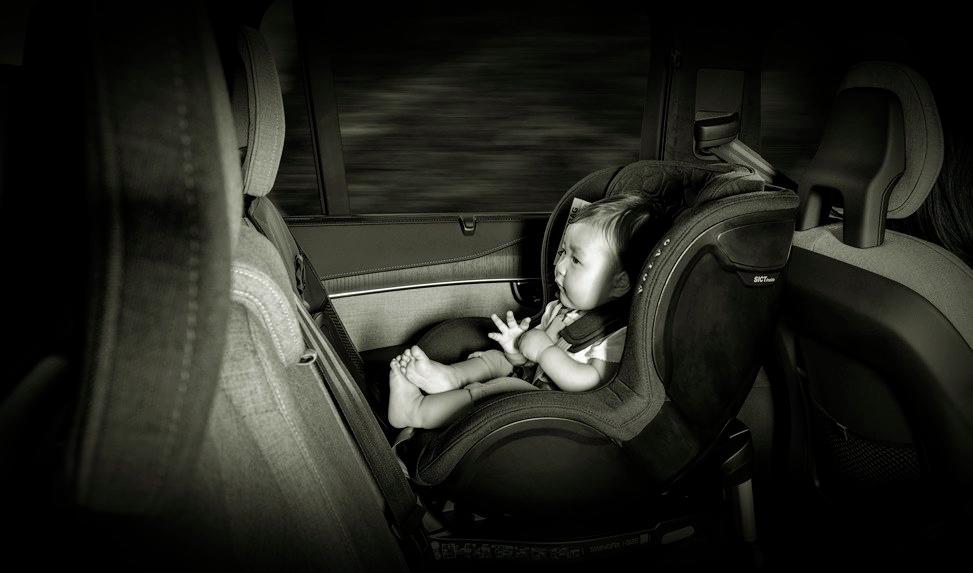IT’S hard to imagine that parents can take their children out in a car and forget about them after parking and getting out. But from the periodic news reports of children being trapped in cars because their parents forgot about them, it does happen – and sometimes a tragic death occurs.
US government statistics show that since 1998, more than 900 children in America have died after being left in hot cars. Heartbreakingly, a majority of hot car deaths occur because someone forgot that their child was in the car at the time. No statistics are readily available for Malaysia but it does happen too.
Volvo as a safety pioneer has given this matter attention and used its technological expertise to develop a system which can help ensure that no one will be left behind or forgotten. It’s a radar system for use inside the cabin and also covers the boot compartment. The radar’s sensitivity is strong enough to detect the tiniest movements at sub-millimetre scale – such as those of a sleeping toddler or even a pet.
The radar sensors, installed in the overhead console, the roof-mounted reading lamps and the boot of the car, will make their first appearance in the new EX90 battery-electric SUV to be unveiled on November 9, 2022. They will also be installed in future models as time goes on.
“No one chooses to be distracted or tired, but we know it can happen,” said Lotta Jakobsson, Volvo’s senior technical specialist in injury prevention. “We’re all human and distraction is a fact of life. With the help of cutting-edge technology, we’ll support you when you’re not at your best and help you avoid leaving family members or pets behind by accident.”
To avoid ‘reminder fatigue’, the experts have determined that the best time to signal the potential presence of family members left inside the car is when you attempt to lock the car. Every time you try to lock the car, the interior radar system is activated and determines whether your car is empty of any people or pets, before it allows the car to be locked.
If a family member or pet is detected inside, the car will remain unlocked and the car will display a reminder to check the cabin for occupants on the centre console screen. The car’s climate and ventilation system can remain on if people or animals are detected in the cabin, to improve comfort. This can also help lower the risk of hypothermia or heatstroke. The climate system will remain working as long as the high-voltage battery has enough charge.
The radar operates on the 60GHz frequency is suitable for automotive use but will require approval from authorities in each country where the vehicle is sold. When approval is obtained, the system can be activated so it is likely that Volvo may pre-install it at the factory.
The heartbeat sensor
This is not the first time Volvo has developed an occupant-sensing system as it had a heartbeat sensor in the S80 20 years ago. This was one of the features of the sophisticated Volvo Personal Communicator (VPC) that allows remote control of many systems in the car from the key fob in your hand.
The heartbeat sensor could pick up the vibration of a beating heart – both human and animal – so it could alert the driver if he or she locked the car and forgot about the sleeping child. A signal would be transmitted to the remote control unit, which would alert the driver via a combination of audible signals and vibration pulses.
At the time Volvo demonstrated the prototype in the early 2000s, it showed a child being trapped in the boot although that scenario was a bit far-fetched! A child would likely be trapped in a boot if he or she was kidnapped and the kidnappers would already be aware!
The heartbeat sensor was meant more for personal security as it could detect someone who had entered the car. The scenario was one of those movie scenes where the bad guy manages to get in and hides behind the seat waiting for the driver. With the heartbeat sensor, the driver would be alerted 100 metres from the car. If he was James Bond, then he would probably get in but anyone else could quickly go away.
The heartbeat sensor feature was mentioned during the 2000s but then faded away so it was probably not a selling point. But the VPC evolved into the Personal Car Communicator and offered features that were advanced in their time. At one stage, Volvo said that someone who forgot to lock their car when it was left at the airport could do so when they landed in another country as the VPC could connect to a cellphone network.














